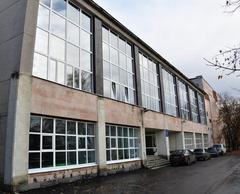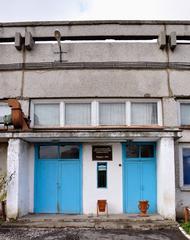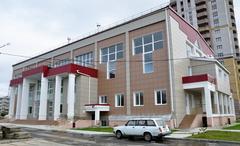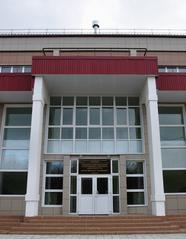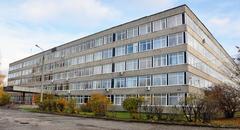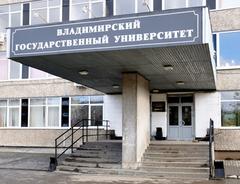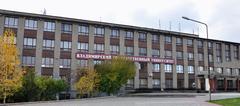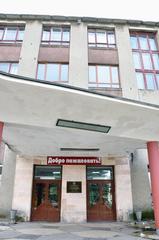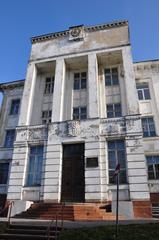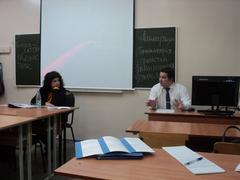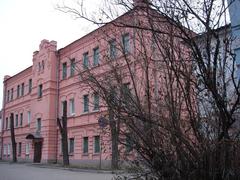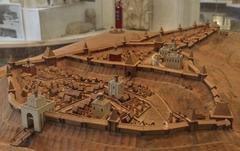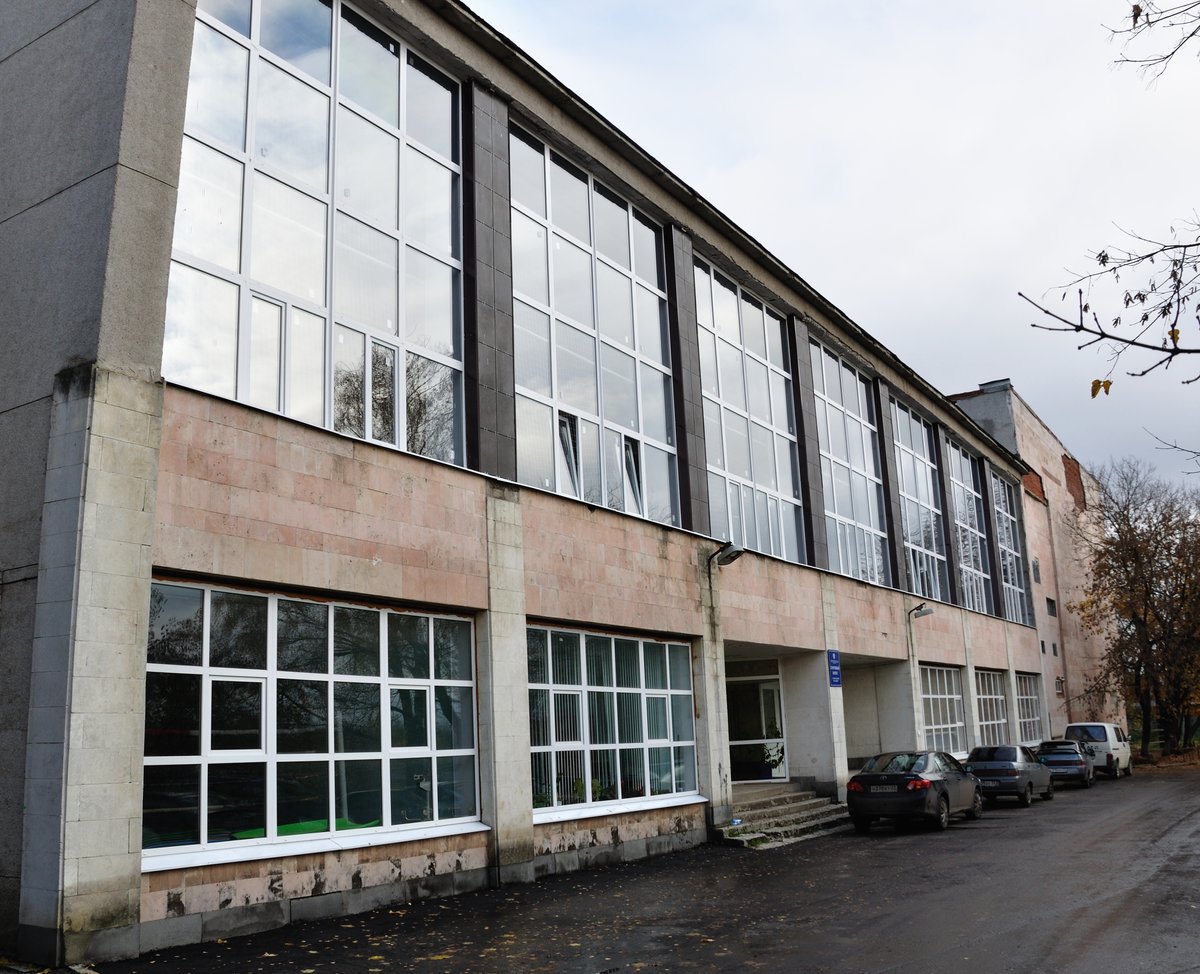
Vladimir State University Visiting Hours, Tickets, and Travel Guide
Date: 14/06/2025
Introduction to Vladimir State University and Its Significance
Vladimir State University (VlSU), situated in the historic city of Vladimir, Russia, stands as a cornerstone of higher education, seamlessly blending the city’s centuries-old heritage with contemporary academic excellence. Established in 1958 during the Soviet Union’s expansion of higher education into regional centers, VlSU has matured into a multidisciplinary university known for its scientific achievements, comprehensive academic programs, and vibrant campus community.
Nestled in one of Russia’s earliest capitals and a key city of the renowned Golden Ring, VlSU not only contributes significantly to education and research but also plays an active role in preserving and promoting Vladimir’s cultural legacy. With over 20,000 students and a distinguished faculty, including many affiliated with the Russian Academy of Sciences, the university is a vital driver of regional development and innovation. Whether you are planning a campus visit, interested in academic opportunities, or eager to explore the historical context of both the university and the city, this guide provides essential information and travel tips.
For more details, visit the VlSU official website (vlsu.ru) and the university’s academic profile (mathnet.ru).
Contents
- Introduction
- Founding and Early Development (1958–1970s)
- Expansion and Academic Diversification (1980s–1990s)
- Scientific Achievements and Internationalization
- Role in Regional and National Development
- Milestones in Research and Innovation
- Academic Structure and Student Life
- Visiting Vladimir State University: Hours, Tours, and Accessibility
- Recent Developments and Commemorative Activities
- Cultural and Historical Significance
- Visitor Guide: Vladimir’s Monuments and Golden Gate
- Frequently Asked Questions (FAQ)
- Conclusion
- Sources
Founding and Early Development (1958–1970s)
VlSU was founded in 1958 as part of a broader Soviet initiative to expand technical education and expertise beyond major cities. Initially, the university’s focus was on engineering, technical sciences, and teacher training, meeting the industrial and educational needs of Vladimir Oblast. These foundations enabled the university to become a leading center for scientific research in central Russia (mathnet.ru).
Expansion and Academic Diversification (1980s–1990s)
The 1980s ushered in a period of diversification, with VlSU introducing new faculties in humanities, natural sciences, and social sciences to reflect evolving academic interests and societal needs. By the 1990s, the university embraced curricular modernization, fostered international partnerships, and invested in technology, including the development of an electronic library to facilitate global academic access (mathnet.ru).
Scientific Achievements and Internationalization
As of 2025, VlSU employs approximately 800 scientists, with 87% holding advanced degrees and 49 being members of the Russian Academy of Sciences (mathnet.ru). The university has become a leader in engineering, material sciences, and pedagogy, and is recognized for collaborations with institutions worldwide, particularly in China.
Since 1978, VlSU has trained specialists for international markets, with alumni present in 46 countries. The student body includes over 300 international students, and the university continues to strengthen cross-border scientific partnerships (vlsu.ru).
Role in Regional and National Development
VlSU’s impact extends beyond academics, playing a pivotal role in Vladimir Oblast’s socio-economic growth. The university supplies local industries and educational institutions with skilled graduates and leads community enrichment initiatives—such as designing monuments for nearby Suzdal and hosting regional cultural events like the “People of Russia” exhibition (vlsu.ru).
Milestones in Research and Innovation
The university’s research centers have achieved notable success, including the development of advanced materials for nuclear power plant components, which have doubled the durability of key elements under harsh conditions. Interdisciplinary projects, such as the “Immortal Squadron,” demonstrate VlSU’s commitment to integrating psychology, pedagogy, and cultural heritage into its research agenda (vlsu.ru).
Academic Structure and Student Life
VlSU is organized into multiple institutes and faculties, offering programs in engineering, natural and social sciences, humanities, and education. Modern facilities include state-of-the-art laboratories and an extensive electronic library (mathnet.ru). The university fosters a dynamic student life, supporting both academic and extracurricular activities, and ensures inclusivity for students with disabilities through tailored support programs (vlsu.ru).
Visiting Vladimir State University: Hours, Tours, and Accessibility
Campus Visiting Hours:
- Monday to Friday: 9:00 AM – 6:00 PM
Campus Tours:
Guided tours are available by appointment and provide visitors with a comprehensive look at VlSU’s facilities, research centers, and campus landmarks. Contact the admissions office or visit the official website to schedule a tour.
Accessibility:
VlSU is committed to inclusivity, offering accessible facilities and accommodations for visitors with disabilities. For transportation, accommodation details, and visitor assistance, refer to the official VlSU website (vlsu.ru).
Recent Developments and Commemorative Activities
VlSU regularly hosts significant regional and national events, such as forums commemorating the 80th anniversary of Victory in World War II and launching patriotic projects like the “Vladimir Outpost.” The university also recognizes distinguished faculty, including Professor Konstantin Vadimovich Tatmyshevsky, for their contributions to science and public service (vlsu.ru).
Cultural and Historical Significance
VlSU’s location in Vladimir—a city rich in medieval architecture and a central hub of the Golden Ring—enhances its cultural footprint. The university collaborates with local museums and organizations to support heritage preservation and foster cultural enrichment for students and the wider community (mathnet.ru).
Visitor Guide: Vladimir’s Monuments and Golden Gate
Discovering Vladimir’s Landmarks
Vladimir is home to several iconic monuments, with the Golden Gate being a UNESCO World Heritage site and a symbol of the city’s medieval strength and artistic ingenuity.
The Golden Gate: Historical Overview
Erected between 1158 and 1164 under Prince Andrei Bogolyubsky, the Golden Gate served as both a fortified entrance and a ceremonial gateway into Vladimir. Its golden-domed chapel and white limestone structure exemplify the Vladimir-Suzdal school of architecture and Russian medieval craftsmanship.
Golden Gate Visiting Information
- Visiting Hours: Daily, 10:00 AM – 6:00 PM (Closed Mondays)
- Tickets:
- Adults: 300 RUB
- Students/Seniors: 150 RUB
- Children under 7: Free
- Family Pass: 700 RUB (2 adults + 2 children)
- Ticket Purchase: At the entrance or online via the official Vladimir tourism portal
Guided Tours:
Guided tours are available in Russian and English (advance booking recommended). Audio guides and informational brochures are offered for self-guided visits.
Accessibility:
The monument is wheelchair accessible, with ramps and elevators installed. Facilities include a gift shop, café, and restrooms.
Nearby Attractions:
- Assumption Cathedral (Andrei Rublev frescoes)
- Cathedral of Saint Demetrius (stone carvings)
- Vladimir History Museum
Travel Tips:
- Wear comfortable shoes (area has cobblestones)
- Visit in late spring or early autumn for the best weather
- Combine your tour with other city landmarks
Frequently Asked Questions (FAQ)
Vladimir State University
Q: What are the admissions requirements?
A: Criteria vary by program, but generally include completion of secondary education and entrance exams. For specifics, see the VlSU admissions page.
Q: Are there programs in English?
A: Some faculties offer English-language courses for international students. Check the website for details.
Q: How many international students attend VlSU?
A: Over 300 international students from more than 46 countries.
Q: Are there resources for students with disabilities?
A: Yes, VlSU provides accessible facilities and support programs.
Golden Gate and Monuments
Q: Can I buy tickets online?
A: Yes, via the official Vladimir tourism website.
Q: Are guided tours offered in English?
A: Yes, English-speaking guides are available with prior booking.
Q: Is the monument suitable for children?
A: Yes, with educational exhibits for all ages.
Q: Are pets allowed?
A: Only service animals are permitted.
Conclusion
Vladimir State University is a beacon of academic innovation and cultural preservation in Russia. Its pivotal role in advancing higher education, fostering scientific research, and contributing to the socio-economic vitality of Vladimir Oblast sets it apart as a leading institution. Visitors can expect a welcoming atmosphere, state-of-the-art facilities, and a rich calendar of cultural events.
Exploring VlSU provides a unique opportunity to engage with both Russia’s educational excellence and its deep historical roots. Coupled with a visit to Vladimir’s celebrated monuments such as the Golden Gate and Assumption Cathedral, your experience in this storied city will be both enriching and unforgettable.
For more information, admissions details, campus tours, and travel tips, consult the official university (vlsu.ru) and tourism (vladimirtourism.ru) websites. Stay connected through their social media channels for the latest updates.

Alt text: A panoramic view of Vladimir State University campus showcasing modern facilities and green spaces.
Sources
- This report draws on information from the Vladimir State University Official Website (https://www.vlsu.ru/), the university’s academic profile (https://www.mathnet.ru/eng/org880), and the Vladimir Tourism Portal (https://vladimirtourism.ru/en/).
- For further details on visiting Vladimir’s monuments and planning your trip, see the official Vladimir tourism portal.
